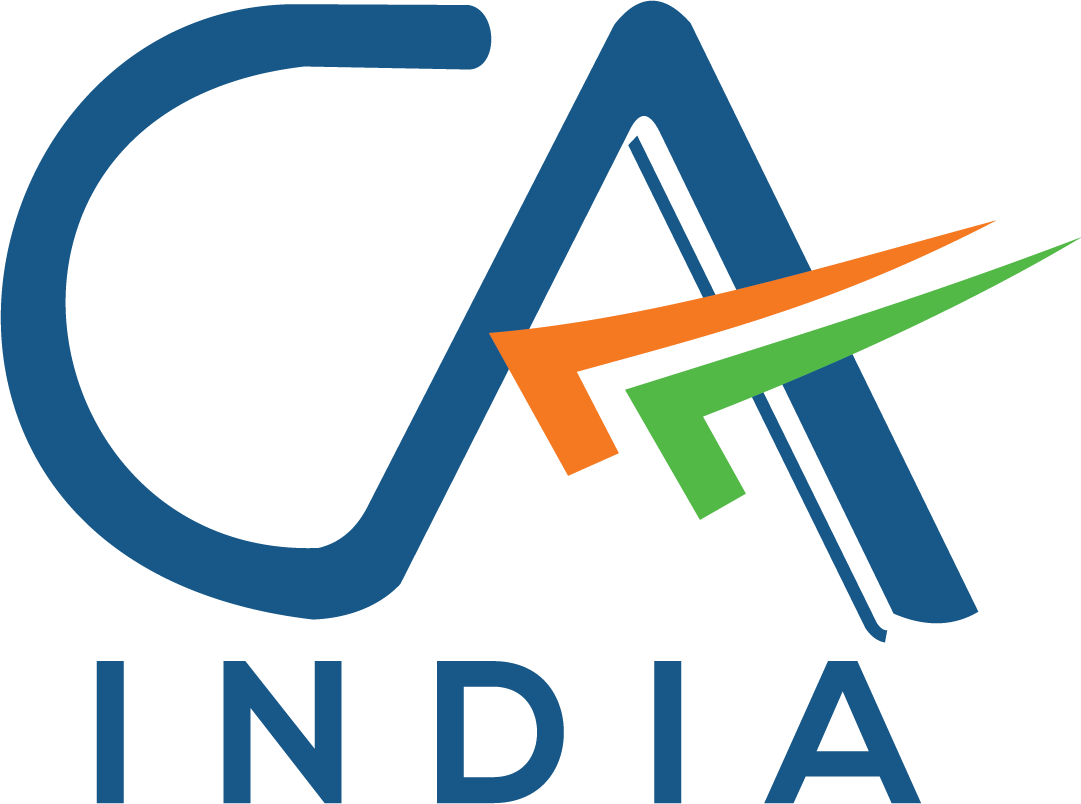Carbon Accounting

About
Carbon Accounting
Carbon accounting refers to the process of quantifying and tracking greenhouse gas (GHG) emissions, typically measured in carbon dioxide equivalent (CO2e), associated with the activities of an organization, product, service, or event. It involves systematically collecting data on emissions sources, calculating emissions inventories, and reporting the findings to stakeholders. Carbon accounting is a crucial component of corporate sustainability and climate change mitigation efforts, enabling organizations to:
- Measure Emissions : Carbon accounting helps organizations understand the scope and scale of their carbon footprint by identifying sources of GHG emissions across their operations, including direct emissions from sources owned or controlled by the organization (Scope 1), indirect emissions from purchased electricity, heat, or steam (Scope 2), and emissions from the value chain (Scope 3).
- Monitor Performance: By tracking emissions over time, organizations can monitor their progress towards emission reduction targets, assess the effectiveness of mitigation measures, and identify opportunities for improvement. Carbon accounting provides valuable insights into trends, patterns, and hotspots that inform decision-making and strategic planning.
- Manage Risks and Opportunities: Understanding carbon emissions helps organizations identify and manage climate-related risks, such as regulatory compliance, physical impacts of climate change, market shifts, and reputational risks. It also enables them to capitalize on opportunities related to resource efficiency, innovation, and market differentiation in a low-carbon economy.
- Report to Stakeholders: Carbon accounting enables organizations to transparently disclose their emissions performance to stakeholders, including investors, customers, employees, regulators, and the broader community. Reporting on carbon emissions demonstrates accountability, builds trust, and enhances reputation, particularly as ESG (Environmental, Social, and Governance) considerations become increasingly important for investors and consumers.
- Drive Climate Action: Carbon accounting serves as a foundation for setting science-based emissions reduction targets aligned with climate science and international agreements such as the Paris Agreement. It empowers organizations to take meaningful action to mitigate climate change, transition to a low-carbon economy, and contribute to global efforts to limit global warming to well below 2°C.

Carbon accounting methodologies and standards vary, but commonly used frameworks include the Greenhouse Gas Protocol developed by the World Resources Institute (WRI) and the World Business Council for Sustainable Development (WBCSD), as well as international standards such as ISO 14064 and ISO 14067. By adopting robust carbon accounting practices, organizations can enhance their resilience, competitiveness, and sustainability in a carbon-constrained world.
Carbon accounting involves assessing and quantifying greenhouse gas (GHG) emissions associated with an organization’s activities, products, or services. The scope and compliance requirements of carbon accounting typically depend on factors such as the organization’s size, sector, geographic location, and stakeholder expectations. Here’s an overview of the scope and compliance considerations:
Scope of Carbon Accounting
Scope 1 Emissions: Direct emissions from sources that are owned or controlled by the organization, such as emissions from combustion of fossil fuels in owned facilities, company-owned vehicles, and emissions from industrial processes.
Scope 2 Emissions: Indirect emissions associated with purchased electricity, heat, or steam consumed by the organization. These emissions occur at the point of generation, typically from power plants.
Scope 3 Emissions : Indirect emissions that occur upstream or downstream of the organization’s operations, including emissions from the supply chain, transportation and distribution of products, business travel, employee commuting, and waste disposal. Scope 3 emissions often represent a significant portion of a company’s total carbon footprint.


Compliance Requirements
Regulatory Compliance : Organizations may be subject to various regulatory requirements related to carbon accounting, emissions reporting, and reduction targets, depending on the jurisdiction in which they operate. For example, some regions have mandatory reporting schemes or emissions trading systems that require companies to report their GHG emissions and may impose caps or targets for emissions reduction.
Voluntary Reporting Initiatives : Many organizations voluntarily participate in carbon accounting and reporting initiatives to demonstrate their commitment to sustainability, attract investors, and meet stakeholder expectations. These initiatives may include frameworks like the Carbon Disclosure Project (CDP), the Task Force on Climate-related Financial Disclosures (TCFD), or industry-specific reporting standards.
International Standards : Organizations may choose to adhere to internationally recognized standards and guidelines for carbon accounting, such as the Greenhouse Gas Protocol developed by the World Resources Institute (WRI) and the World Business Council for Sustainable Development (WBCSD), or ISO standards like ISO 14064 for GHG accounting and ISO 14067 for carbon footprinting.
– Supply Chain Requirements: Increasingly, organizations are expected to address emissions associated with their supply chains and engage suppliers in carbon accounting and reduction efforts. This may involve requesting emissions data from suppliers, setting supplier emissions reduction targets, or collaborating on sustainability initiatives.
Best Practices and Frameworks
– Adopting a systematic approach to carbon accounting based on recognized methodologies and best practices helps ensure accuracy, consistency, and comparability of emissions data.
– Integrating carbon accounting into broader sustainability management systems and strategies enables organizations to align carbon reduction efforts with other environmental and social objectives.
– Engaging stakeholders, including employees, investors, customers, and communities, in the carbon accounting process enhances transparency, accountability, and support for emissions reduction initiatives.
Overall, effective carbon accounting requires a comprehensive understanding of an organization’s emissions sources, robust data collection and measurement systems, adherence to relevant standards and regulations, and a commitment to continuous improvement and transparency in reporting. By managing their carbon footprint effectively, organizations can mitigate risks, capture opportunities, and contribute to global efforts to address climate change.

In India, chartered accountants (CAs) can provide a range of carbon accounting services to help businesses effectively manage their greenhouse gas (GHG) emissions and comply with regulatory requirements. Some of the carbon accounting services offered by chartered accountants in India include:
- Emissions Inventory Management: Chartered accountants can assist companies in compiling comprehensive inventories of their GHG emissions, including Scope 1 (direct), Scope 2 (indirect), and Scope 3 (indirect) emissions. This involves collecting data on energy consumption, fuel use, transportation, waste generation, and other relevant activities.
- GHG Accounting and Reporting: CAs can help companies calculate their carbon footprint using internationally recognized methodologies such as the Greenhouse Gas Protocol or ISO 14064 standards. They can prepare GHG emissions reports and disclosures for regulatory compliance, voluntary reporting initiatives, or stakeholder communication.
- Regulatory Compliance: Chartered accountants can advise companies on relevant carbon accounting regulations and compliance requirements applicable in India, including emissions reporting obligations under schemes such as the National Action Plan on Climate Change (NAPCC) or state-level emissions trading programs.
- Carbon Offsetting and Credits: CAs can assist companies in exploring carbon offsetting options and participating in carbon credit markets. This may involve evaluating carbon offset projects, calculating emission reductions, and managing the process of purchasing or selling carbon credits.
- Carbon Management Strategies: Chartered accountants can help companies develop carbon management strategies aimed at reducing emissions, improving energy efficiency, and transitioning to low-carbon technologies and practices. They can conduct cost-benefit analyses of emission reduction measures and assist in setting targets and action plans.
- Supply Chain Emissions Management: CAs can support companies in assessing and managing GHG emissions associated with their supply chains. This includes engaging suppliers, collecting emissions data, and implementing strategies to reduce supply chain emissions.
- Sustainability Reporting: Chartered accountants can assist companies in integrating carbon accounting into broader sustainability reporting frameworks such as the Global Reporting Initiative (GRI) or the Sustainable Development Goals (SDGs). They can help companies communicate their carbon performance and sustainability initiatives to stakeholders effectively.
- Training and Capacity Building: CAs can provide training programs and workshops to build internal capacity and awareness among company personnel on carbon accounting principles, methodologies, and best practices.
By offering these carbon accounting services, chartered accountants in India play a critical role in helping businesses address climate change, meet regulatory requirements, and enhance their sustainability performance.

Why Us?
We At Singh Suri & Company, Chartered Accountants can provide a range of carbon accounting services to help businesses effectively manage their greenhouse gas (GHG) emissions and comply with regulatory requirements. Some of the carbon accounting services offered by us include:
- Emissions Inventory Management: We can assist companies in compiling comprehensive inventories of their GHG emissions, including Scope 1 (direct), Scope 2 (indirect), and Scope 3 (indirect) emissions. This involves collecting data on energy consumption, fuel use, transportation, waste generation, and other relevant activities.
- GHG Accounting and Reporting: We can help companies calculate their carbon footprint using internationally recognized methodologies such as the Greenhouse Gas Protocol or ISO 14064 standards. We can prepare GHG emissions reports and disclosures for regulatory compliance, voluntary reporting initiatives, or stakeholder communication.
- Regulatory Compliance: We can advise companies on relevant carbon accounting regulations and compliance requirements applicable in India, including emissions reporting obligations under schemes such as the National Action Plan on Climate Change (NAPCC) or state-level emissions trading programs.
- Carbon Offsetting and Credits: We can assist companies in exploring carbon offsetting options and participating in carbon credit markets. This may involve evaluating carbon offset projects, calculating emission reductions, and managing the process of purchasing or selling carbon credits.
- Carbon Management Strategies: We can help companies develop carbon management strategies aimed at reducing emissions, improving energy efficiency, and transitioning to low-carbon technologies and practices. We can conduct cost-benefit analyses of emission reduction measures and assist in setting targets and action plans.
- Supply Chain Emissions Management: We can support companies in assessing and managing GHG emissions associated with their supply chains. This includes engaging suppliers, collecting emissions data, and implementing strategies to reduce supply chain emissions.
- Sustainability Reporting: We can assist companies in integrating carbon accounting into broader sustainability reporting frameworks such as the Global Reporting Initiative (GRI) or the Sustainable Development Goals (SDGs). We can help companies communicate their carbon performance and sustainability initiatives to stakeholders effectively.
- Training and Capacity Building: We can provide training programs and workshops to build internal capacity and awareness among company personnel on carbon accounting principles, methodologies, and best practices.
By offering these carbon accounting services, Singh Suri & Company, Chartered Accountants play a critical role in helping businesses address climate change, meet regulatory requirements, and enhance their sustainability performance.


